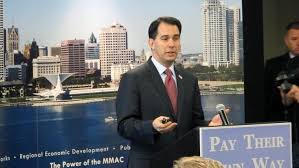 When Los Angeles Lakers’ Kobe Bryant goes on the road to play basketball games in states that impose state income taxes, not only “does he leave behind enduring images of slam dunks and buzzer beaters,” he also leaves behind a large amount of his paycheck in the form of a jock tax. Any municipality or state with an income tax could assess any visitor who earns money in that city or state. As a practical matter it is difficult for most state revenue departments to track every business person who earns income in that state, but not so for professional athletes whose schedules and salaries are public information.[1]
When Los Angeles Lakers’ Kobe Bryant goes on the road to play basketball games in states that impose state income taxes, not only “does he leave behind enduring images of slam dunks and buzzer beaters,” he also leaves behind a large amount of his paycheck in the form of a jock tax. Any municipality or state with an income tax could assess any visitor who earns money in that city or state. As a practical matter it is difficult for most state revenue departments to track every business person who earns income in that state, but not so for professional athletes whose schedules and salaries are public information.[1]
Taxing states and municipalities impose a jock tax on visiting professional athletes in one of two ways – most use the duty days method of calculation which divides the players total number of work days during the season by the number of days spent playing in that state. In the alternative, a few states use the games played method which essentially divides the total number of games in the season into the total number of games played in that state.
Unfortunately to cause accountants a nightmare, no two states calculate the jock tax in exactly the same manner.
The so-called jock tax originated in 1991 when the State of California imposed its state tax on earnings of the Chicago Bull players who traveled to Los Angeles to play the Lakers in that year’s NBA final. Illinois thereafter retaliated imposing its own jock tax on out of state players. Then other states followed suit and by 2014 the only US jurisdictions with major professional teams without a jock tax were Florida, Texas, Washington, and Washington, D.C. Twenty-one states “collect income tax from visiting athletes who compete in the NFL, NBA, NHL, and MLB. In addition, nine cities or counties with major professional sports teams tax visiting players and anyone who accompanies the team.”[2]
Here is an example of how the jock tax works: Kobe Bryant of the L.A. Lakers has an annual salary of approximately $23.5 million and is the highest paid player in the NBA. When Bryant plays the Cleveland Cavaliers in the State of Ohio (Ohio), Bryant will be exposed to Ohio’s jock tax. Ohio will take duty days Bryant spends in Ohio and divide by the number of duty days in the season (somewhere around 200 days). Ohio will then take this percentage and multiply it by Bryant’s total income ($23.5 million) to arrive at the portion of his income that will be attributed to Ohio ($117,500.00). Ohio will then multiply Bryant’s income earned in Ohio by its tax rate ($117,500.00 x 4.99%) to arrive at his jock tax bill for the state of $5,863.00. However, it doesn’t end there. The City of Cleveland (Cleveland) now puts another 2% tax on top of Ohio’s income tax calculated as follows: Cleveland takes the games played in the state (1) divided by the total number of games in the season (82). Cleveland then takes this percentage and multiplies it by Bryant’s total income ($23.5 million) to arrive at the portion of his income attributable to Cleveland’s tax ($286,685.00). Cleveland then multiples Bryant’s income by the city’s tax rate of 2% to arrive at Bryant’s jock tax bill for Cleveland of $5,732.00. Bryant will then have a combined city-state jock tax bill of $11,595.00 for his one day stay for work in Cleveland, Ohio.[3]
There is one more interesting facet to this scenario, California – Bryant’s home state – gives him a credit for the taxes paid in Ohio, but since California’s income tax rate is higher than Ohio’s in the top tax bracket, it is not a wash and Bryant would still owe taxes in California, but not more than he would normally pay overall.
The State of Wisconsin (“Wisconsin”) taxes a portion of a professional athlete’s total compensation for services rendered. The portion allocated to Wisconsin is based upon the share of the individual’s duty days in Wisconsin relative to his total duty days. However, Wisconsin does not tax the wages of individuals who are residents of states with which Wisconsin has an income tax reciprocity agreement (Illinois, Indiana, Kentucky, and Michigan). The Legislative Fiscal Bureau estimates that NBA players and other team employees who are potentially subject to Wisconsin individual income tax, as of December 2012, paid in the aggregate approximately $10.7 million in that year. The funds collected go into the state’s general fund and are used for general state purposes. [4]
How about a jock tax helping to fund an NBA arena? Not so farfetched. Governor Scott Walker of Wisconsin has made such a proposal. The Bucks were sold to hedge fund moguls Mark Lasry and Wesley Edens, who have combined to commit $150 million towards the construction of a new arena. In addition, former Bucks owner, Senator Herb Kohl, has committed another $100 million, i.e. – a total of $250 million already committed.
Walker announced on January 27, 2015 a plan to issue state bonds for a new Milwaukee arena in an amount not to exceed $220 million dollars. Walker called his plan a common sense, fiscally conservative approach, and a “Pay-Their-Way” plan. The jock tax proposal would not cost the tax payers a penny according to Walker. “We are going to help the Bucks pay their own way to a new arena.” Walker said that the growth in income tax revenues from Milwaukee Bucks players, employees and visiting team, would generate enough money to cover the $220 million in state issued bonds for the arena. Of the $220 million, $20 million will be utilized to pay off existing BMO Harris Bradley Center debt. The $220 million would only be released after $300 million of other funding for the arena had been secured. The extra $50 million of funding would come from the city, county, or from potential land swaps between governments. The new arena is estimated to cost somewhere between $400-500 million.[5]
The catalyst for the debt service is the anticipated increase in players salary due in part to huge increases in the amount of money television networks are willing to pay the NBA and its member teams. No current base revenue would be used to pay the bonds and that base has been estimated to be $6.52 million and will continue to go to the general fund.[6]
The Governor’s proposal anticipates income tax on NBA players increasing from $6.52 million in 2014 to $13.55 million by 2024. Walker’s proposed to use the future growth in jock tax revenue from rising base salaries to cover debt service costs for a new Bucks arena. The NBA “signed new television contracts with Walt Disney’s ESPN and Time Warner’s TNT. The NBA and two networks signed a new, nine year deal worth $2.66 billion per year that takes effect during the 2016-2017 season. The league’s current contract with the two networks is worth about $930 million per year.”[7] The new television deal will involve approximately 180% increase from the previous deals.
It is estimated that LeBron James of the Cleveland Cavaliers pays approximately $33,248 for two games played in Milwaukee, Dwayne Wade of the Miami Heat – $24,158 for two games in Milwaukee, Kobe Bryant of the Los Angeles Lakers – $18,924 for one game played in Milwaukee, Carmelo Anthony of the New York Knicks – $18,085 for one game in Milwaukee, and Dirk Nwitzki of the Dallas Mavericks – $6,422 for one game in Milwaukee.[8]
[1] Povich, Elaine S., Pew Charitable Trusts, “Superstar Athletes Pay Big Jock Taxes in Some States,” October 26, 2014, http://www.govexec.com/state-local/2014/10/state-jock-taxes/97412/
[2] Raiola, Robert, O’Connor Davies, LLP, Cranford, N.J., “The State of Jock Taxes,” reprinted by the Milwaukee Business Journal, February 13, 2015.
[3] Povich, Elaine S., Pew Charitable Trusts, “Superstar Athletes Pay Big Jock Taxes in Some States,” October 26, 2014, http://www.govexec.com/state-local/2014/10/state-jock-taxes/97412/
[4] Memorandum from Bob Lang, Legislative Fiscal Bureau to Representative Robin Vos, September 30, 2014
[5] Walker, Don, Journal Sentinel, “Walker proposes investment of $220 million for Bucks arena,” January 27, 2015,
[6] Id.
[7] Imbert, Fred, CNBC, “Wisconsin May Have Found a New Way to Fund Arenas,” January 30, 2015, http://www.cnbc.com/id/102376651
[8] Raiola, Robert, O’Connor Davies, LLP, Cranford, N.J., “Superstar Taxes,” reprinted by the Milwaukee Business Journal, February 13, 2015.


